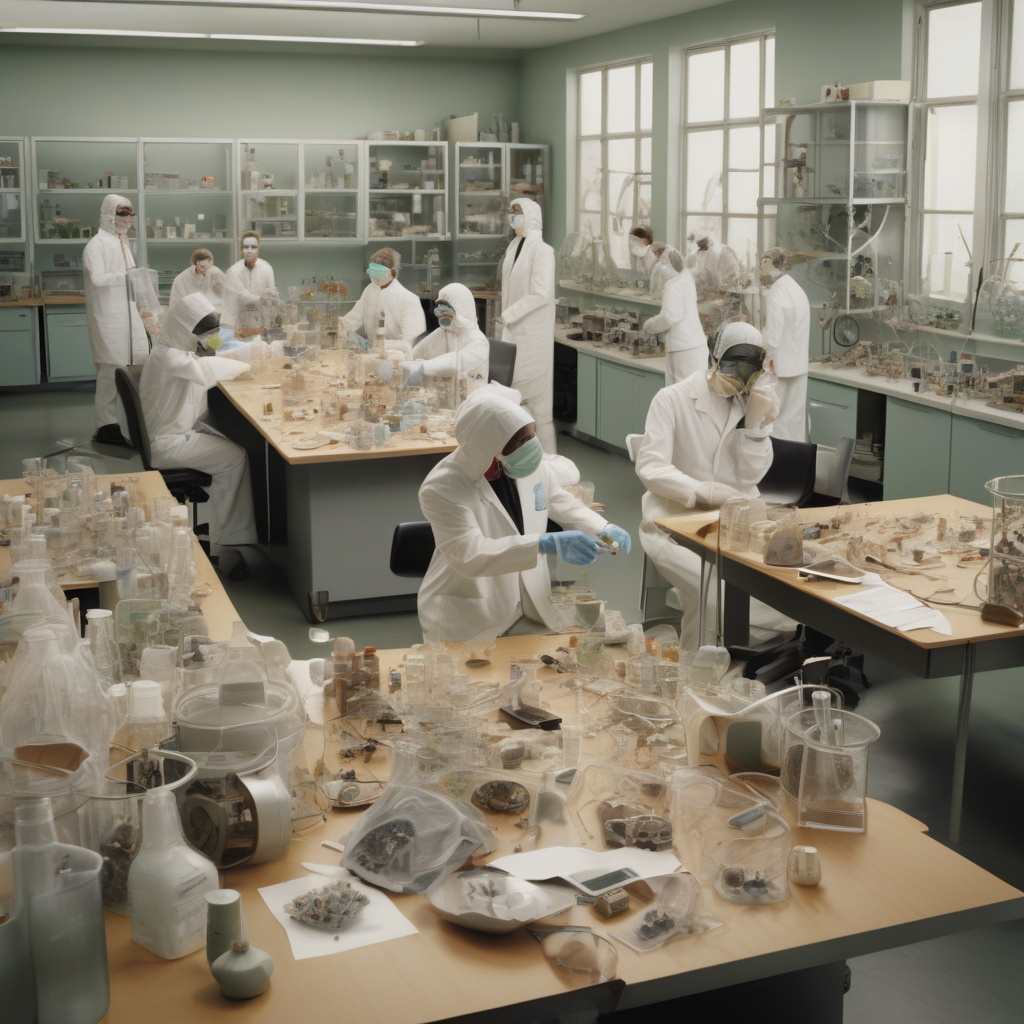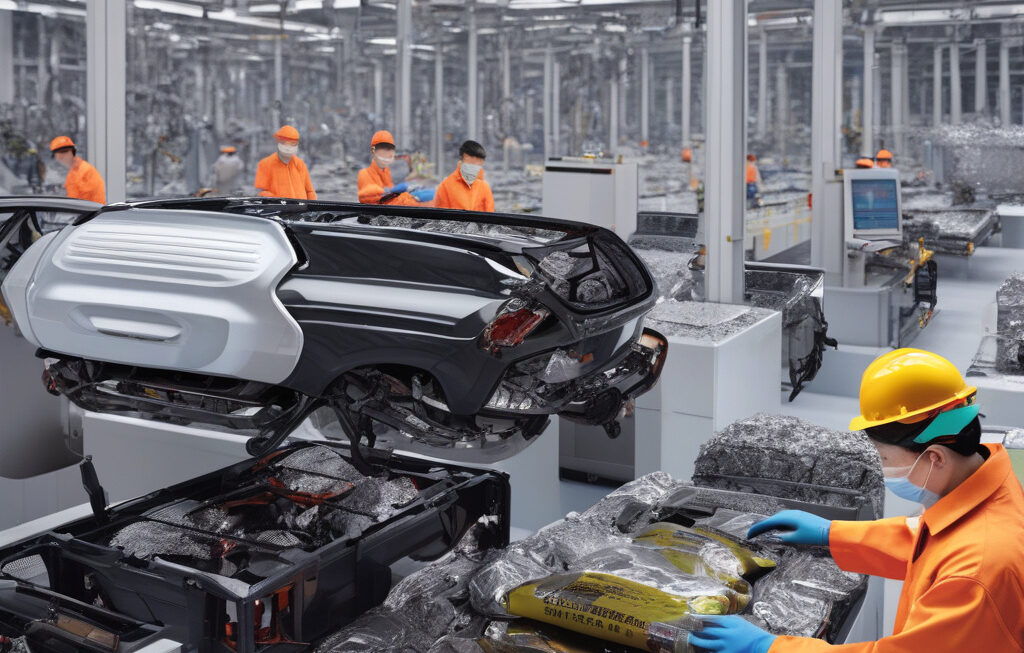From Pandemic Waste to Electric Vehicles: How Scientists Are Revolutionizing Recycling
Researchers in Australia and China have devised a way to transform mountains of pandemic-era polypropylene waste into cutting-edge electronic components for electric vehicles (EVs). With an estimated 950 billion discarded face masks worldwide due to the COVID-19 pandemic, the need for sustainable solutions to manage this waste has never been more pressing.
The innovative project aims to tackle both the environmental impact of single-use face masks and the growing demand for electronic devices in the automotive industry. By converting polypropylene from disposable masks into valuable materials for EVs, scientists are paving the way for a more circular economy and a cleaner future.
Polypropylene, the primary material used in face masks for its durability and flexibility, is a challenging waste stream due to its non-biodegradable nature. Traditional disposal methods, such as landfilling or incineration, contribute to pollution and resource depletion. However, by harnessing advanced recycling techniques, researchers are turning this waste into a valuable resource.
The process involves breaking down polypropylene masks into their chemical building blocks, which can then be used to manufacture electronic components like battery separators and capacitors for EVs. These components play a crucial role in enhancing the performance and efficiency of electric vehicles, contributing to the global shift towards sustainable transportation.
Not only does this innovative approach help reduce the environmental footprint of discarded face masks, but it also addresses the growing demand for electronic materials in the automotive sector. As the world transitions towards electric vehicles to combat climate change, the need for sustainable sourcing and recycling of materials becomes increasingly important.
By repurposing pandemic waste into high-tech solutions for EVs, scientists are demonstrating the power of innovation in driving positive change. This groundbreaking research showcases the potential for turning challenges into opportunities and transforming waste streams into valuable resources.
The collaboration between Australian and Chinese researchers highlights the importance of international cooperation in finding sustainable solutions to global challenges. By sharing knowledge and expertise, scientists can accelerate the development of innovative technologies that benefit both the environment and society.
As we look towards a future powered by electric vehicles and sustainable practices, initiatives like this offer a glimpse of what is possible when science and creativity converge. By reimagining waste as a valuable commodity, we can create a more resilient and resource-efficient world for generations to come.
In conclusion, the project to convert 950 billion discarded pandemic face masks into electronic components for EVs represents a pioneering step towards a circular economy and sustainable innovation. By harnessing the potential of recycled materials, researchers are not only reducing waste but also shaping a greener future for the automotive industry and beyond.
recycling, sustainability, electric vehicles, innovation, circular economy












